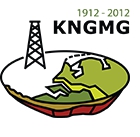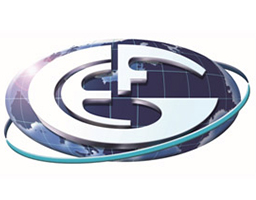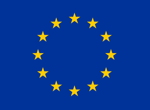
8:30-9:00 – Registration
Morning Session – EU Energy Policy discussed by policymakers
9:00-9:15 – Opening speech – Lucia van Geuns (KNGMG President)
9:15-9:45 – Geology and the energy transition – Vítor Correia (EFG President)
9:45-10:15 – EC and the energy transition – Haitze Siemers (Head of Unit ‘New energy technologies, innovation and clean coal’, DG ENER, European Commission)
10:15-10:45 – Coffee break
10:45-11:15 – Energy at the Dutch Ministry of Economic Affairs & Climate Change – Ruud Cino (Dutch Ministry of Economic Affairs & Climate Change)
11:15-11:45 – Spain and the energy transition – tbc
11:45-12:15 – The R&I frontiers as envisaged by the European Technology & Innovation Platform on Deep Geothermal – Adele Manzella (Geophysicist- Geothermal coordination, Italian National Research Council (CNR))
12:15-12:30 – Questions and answers
12:30-13:30 – Lunch break
Poster session – Results from student projects at Dutch Universities (e.g. DUT and UU) on the energy transition
Afternoon Session I – CHPM2030 – Combined Heat, Power and Metal extraction from ultra-deep ore bodies
CHPM2030 aims to develop a novel and potentially disruptive technology solution that can help satisfy the European needs for energy and strategic metals in a single interlinked process. This session will include the presentation of the final project results by the project partners.
13:30-13:55 – Overview of the CHPM2030 project results – Éva Hartai, Tamás Madarász (CHPM2030 project coordinators, University of Miskolc)
13:55-14:20 – Metal content mobilisation from deep ore bodies – Chris Rochelle (British Geological Survey)
14:20-14:45 – Metal recovery from geothermal fluids – Xochitl Dominguez, Jan Fransaer (VITO)
14:45-15:10 – Salt gradient power generation by reverse electrodialysis – Joost Helsen (VITO)
15:10-15:35 – Coffee break
15:35-16:00 – System integration and conceptual framework for the CHPM plant – Árni Ragnarsson (Iceland GeoSurvey)
16:00-16:25 – Economic and environmental aspects of the CHPM technology – Wojtech Wertich, Máté Osvald (MinPol, University of Szeged)
16:25-16:50 – 2030 and 2050 Roadmaps for the CHPM technology – Tamás Miklovicz (La Palma Research Centre)
Afternoon session II – Geosciences in the energy transition
Projects presented by geologists for geologists
13:30-13:50 – CO2-Plume Geothermal (CPG) technology – Martin Saar (ETH Zürich)
13:50-14:10 – Enhancing Geothermal Reservoirs – Hydraulic and Thermal Stimulation Technology (ERiS); Thermo-Mechanical Subsurface Energy Storage – Inga Berre (University of Bergen)
14:10-14:30 – GEOCOND- Advanced materials and processes to improve performance and cost-efficiency of Shallow Geothermal systems and UTES. An European project to increase the performance and impact of the SGEs – Jose Manuel Cuevas Castell (Technical University of Valencia)
14:30-14:50 – Energy storage/Geologic Carbon Sequestration – tbc
14:50-15:10 – Coffee break
15:10-15:30 – Offshore Foundations and risk in geotechnical engineering – Kenneth Gavin (TU Delft)
15:30-15:50 – Solar farm & geology – Ramón Perez (Tecsolgeo)
15:50-16:10 – Hydropower/Enabling renewable energy for hydropower – tbc
16:10-16:30 – CO2 storage for completing the energy transition – Rowena Stead, Ton Wildenburg (BRGM/TNO)
16:30-16:50 – Geothermal Energy and Society – tbc
16:50-17:10 – Wrap-up of the afternoon sessions
17:10-18:30 – Drinks and networking event
19:00- Dinner (not included in the EuroWorkshop fee)
Fees for the Euroworkshop, 23 May 2019
|
Type of registration |
Rate for the EuroWorkshop |
Comment |
|
CHPM partners |
– EUR |
Directly paid by the project |
|
EurGeol title holders |
25 EUR |
|
|
Students |
25 EUR |
Students need to provide proof of registration at an University |
|
Members of a National Association (e.g. KNGMG) and an EFG member |
45 EUR |
|
|
Special offer for Dutch participants that are not a member of the KNGMG |
90 EUR |
This will include access to the workshop and the annual membership fee for 2019 of the KNGMG |
|
All other participants |
90 EUR |
|
The fee for the Euroworkshop includes access, refreshments during the breaks, lunch and closing drinks.
Fee for the EuroWorkshop dinner, 23 May 2019
|
Type of registration |
Dinner |
Comment |
|
All participants or accompanying persons |
60 EUR |
Seating for the dinner may be limited. Please specify any dietary requirements during registration |
Fee for the Excursion, 24 May 2019
|
Type of registration |
Excursion |
Comment |
|
All participants or accompanying persons |
60 EUR |
Number of participants is limited to approx. 40. |
The fee for the excursion includes bus travel, refreshments and lunch, and an excursion guide.
Venue:
The location is in the former faculty of Mining Engineering in Delft, a historic building dating from the start of the 20th century, specially built to house to universities collection of minerals and rocks. Recently the building was transformed to house the Science Center, a new facility to engage the public and specifically young people in science. Part of the Science Center are the unique meeting rooms that have been preserved in the original look and feel of the academic environment of the early 20thcentury.


Address:
Science Center of Delft University of Technology
Mijnbouwstraat 120, 2628 RX Delft, the Netherlands
Tel: +31 15 278 5200
Delft is a city in the province of South Holland, Netherlands. It is located between Rotterdam, to the southeast, and The Hague, to the northwest, and is part of the larger metropolitan area the Randstad. Delft has geosciences in its name. The word ‘Delf’, comes from the word ‘delven’, meaning digging, and led to the name Delft. Referring to the digging the canals for water management enabling the growth of the city as a trade post and academic centre.
Delft is a popular tourist attraction due to its picturesque old town and many landmark buildings dating from the 17th century Golden Age. It is home to Delft University of Technology, regarded as an excellent centre of technological research and development in the Netherlands, Delft Blue pottery and the currently reigning House of Oranje-Nassau. Delft has a special place in the history of microbiology, thanks to the pioneering contributions of Antonie van Leeuwenhoek and Martinus Beijerinck. Furthermore, Delft is the hometown of Johannes Vermeer one of the famous Dutch painters of the Golden Age.
Getting there and away.
The Netherlands can be easily reached by plane. The Airport of Amsterdam (Schiphol) has daily flights to the corners of the world. From the Schiphol it is most convenient to travel by train to Delft. This will take you 40-60 minutes depending on the time of day and available service. The main train station of Delft has recently been upgraded and is situated in the centre of town. Trains to Delft depart between 06.00 AM and midnight every 15 minutes and every hour between 02.00 and 05.00 AM (visit www.ns.nl for information on departure times. Depart: Schiphol airport Arrival: Delft). Do note that train delays are not uncommon. Typically, delays are limited to 5-10 minutes and delays exceeding 30 minutes are exceptional.
Taxis are very expensive in the Netherlands, while travelling by public transportation is safe and relatively cheap. Uber is active in the Netherlands and provides the advantage of having a fixed price before departing.
An alternative airport to arrive is The Hague-Rotterdam Airport which is very close to Delft. However limited flights arrive here. One of the primary airlines that uses this airport is Transavia (www.transavia.com). There are regular line-busses to Delft.
There are two high-speed train connections, Thalys (Paris/Brussels – Rotterdam) and the Eurostar (London – Rotterdam). Do note that you will have to transfer in Rotterdam to a regular service between Rotterdam and Delft.
Staying in Delft
Delft has many hotels and Bed & Breakfast accommodations. Do note prices will rise over time. Early booking is recommended, the price range is approximately 75-125 EUR a night and could double for last minute bookings. Delft is a popular venue for symposia and conferences, so hotel accommodations can fill-up quickly for certain periods.
The city centre has ample accommodations. The venue for the workshop and the council meeting is situated just outside the city centre, within walking distance.
Alternative locations to stay are The Hague and Rotterdam. You should take into consideration a travel time of an hour to reach the venue.
Booking.com provides a good overview of the available accommodations. If an accommodation is unavailable on Booking.com it could be worthwhile contacting the hotel directly. Hotels tend to withhold rooms for direct reservations to avoid paying fees to online reservation sites, such as Booking.com
Getting around
Almost everybody in the Netherlands speaks English. Do note that the level of proficiency varies, and the pronunciation and clarity could be an issue. You will manage.
Most hotels will provide rental bikes, which are an easy and quick way to go from one location to the next. Due to the flat landscape bike riding is easy and not strenuous. However, cycling during rush hour can be stressful since most (students) cyclists bend the traffic rules to their advantage. When using a bike always lock the bike. Bike theft is the number one crime in Delft.
Walking is an easy alternative in Delft, to give an idea of scale one can cross through Delft City centre easily in 25 minutes from North to South. From Delft train station to the venue is about 15 minutes’ walk.
There are regular buses from the train station to the venue (e.g. Busses 40, 55, 69, 174, ask for directions to the first bus at the station), your stop is Julianalaan, Delft. The bus will take 4 minutes. A 2-minute walk will bring you to the venue. Buses can be extremely busy before 09.00 with many students travelling to the university (classes commence at 09.15).
Safety and Security
The Netherlands in general and Delft, in particular, are very safe. However, crime does occur. Criminals tend to look for soft targets, such as solo travellers. Be aware of your surroundings, prevent isolation, watch your luggage and do not respond to any unusual requests. Officials are easily recognizable and generally friendly and helpful. If they contact you, they will always identify themselves and will never ask for money.
Terror threat is substantial and comparable with countries like Belgium, Germany, Denmark. Regular updates are provided by the government on https://english.nctv.nl/.
You can register at the following link.
1 Data procession notice
The organisers of this event (European Federation of Geologists (EFG), the Royal Geological and Mining Society of the Netherlands (KNGMG) and the Horizon 2020 funded CHPM2030 project) are collecting the data you have provided for the registration to the EuroWorkshop on “Geology and the energy transition” on 23 May 2019 in Delft, the Netherlands.
Your personal data are processed in accordance with the General Data Protection Regulation (EU) 2016/679.
The purpose of this data collection is to ensure a smooth organisation of the EuroWorkshop on “Geology and the energy transition” on 23 May 2019 and provide participants access to the venue.
The following personal data are collected: email address, first name, last name, professional affiliation and dietary requirements. We are asking for your dietary requirements to do our best to adapt the catering during the event accordingly.
The recipients of your data will be the EFG, KNGMG and CHPM2030 staff in charge of the event organisation. The participants list will be distributed during the event to all the participants including names, affiliations and professional email addresses. Your data will not be shared with third parties and will not be used for other purposes.
Your data will be kept for a maximum period of three months after the end of the event. Data will be automatically deleted at the end of this period.
You have the right to access your personal data and the right to correct any inaccurate or incomplete personal data. If you have any queries concerning the processing of your personal data, you may address them to the EFG Office at info.efg@eurogeologists.eu.
2 Notice of filming, photography and audio recording
Photography, audio and video recording may occur during the event for communication and promotional purposes. By attending this event, you consent to interview(s), photography, audio recording, video recording and its/their release, publication, exhibition, or reproduction to be used for communications and promotional purposes on websites, social media, newsletters and other publications by the event organisers. You release the organisers of the event, its staff, and each and all persons involved from any liability connected with the taking, recording, digitising, or publication and use of interviews, photographs, computer images, video and/or sound recordings.
If you do not notify the organisers that you do not want to be filmed, recorded or photographed, you waive all rights you may have to any claim for the use of your image for communication activities related to the event.
You have the right to choose to not be filmed or photographed during the event. Please notify us (info.efg@eurogeologists.eu) of your wish to not be featured on websites, social media, newsletters and other publications.
You have been fully informed of your consent, waiver of liability, and release before entering the event.
Co-organisers
CHPM2030 project
Royal Geological and Mining Society of the Netherlands (KNGMG)
European Federation of Geologists



Sponsors
TNO Geological Survey of the Netherlands & Deltares

CHPM2030 has received funding from the European Union’s Horizon 2020 research and innovation programme under grant agreement nº 654100
